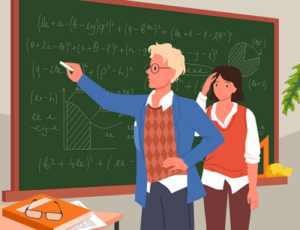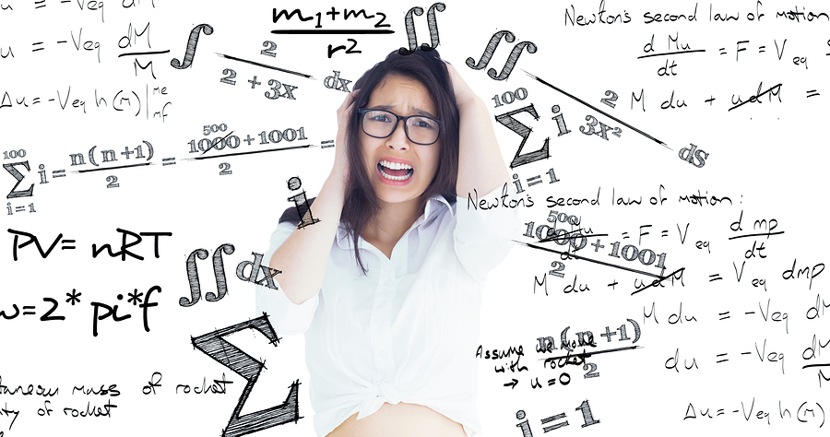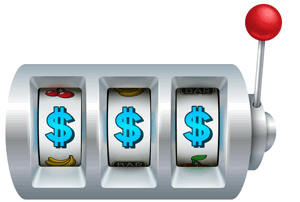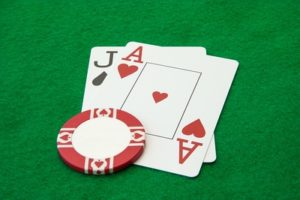 When Galileo said in the 17th century that “The Book of Nature is written in the language of mathematics” he was mainly concerned with the physics of the moving bodies. Scientists, mathematicians, and philosophers acknowledged over the centuries that the Galilean principle applies not only to every part of the nature as we humans see it, but to the human activities, behaviour, and reason as well.
When Galileo said in the 17th century that “The Book of Nature is written in the language of mathematics” he was mainly concerned with the physics of the moving bodies. Scientists, mathematicians, and philosophers acknowledged over the centuries that the Galilean principle applies not only to every part of the nature as we humans see it, but to the human activities, behaviour, and reason as well.
Gambling is a complex phenomenon and a popular activity for people all over the globe, and has a strong mathematical dimension. In this article we will see what the roles of mathematics are in gambling and how these roles concern all entities participating in the phenomenon, including the companies, the gamblers, and the problem-gambling experts.
Mathematical models as a premise for the existence of industrial gambling

When developing a game of chance, the producer is aware that such a game will run under conditions of uncertainty regarding its outcomes, and the developers have to be sure that the producer and operators won’t go bankrupt – or at least the chances of that happening are low enough to be worth the investment. The only scientific tool able to provide such a guarantee is mathematical modelling.
There are the mathematical models describing that game and the behaviour of its outcomes that will tell the developer – in mathematical terms and numbers – that a certain game design is or is not worth the risk.
These models will also be the operational framework of the mathematician dealing with the creation of that game, by telling them how to choose, adjust, or modify the parameters of the game so as to meet the expected or required conditions.
The game’s rules, number and distribution of its variable elements, and payout schedule – what we usually call the characteristics of a game – are describable in mathematical terms and stand as the entry data for the applications using probability and statistical models. These applications yield mathematical information in regard to the outcomes of the game, in terms of Probability Theory and Statistics, namely probabilities and statistical indicators in the form of statistical means and averages.
For example, in slots, the number of the reels, the distribution and weighting of the symbols on each reel, and the payout associated with each payline will provide the statistical indicators that the company will take as their “certificate of guarantee” that the game will run in their favour, as well as the desired behaviour of the machine (how often it will return money to players, in what proportion, etc.).
The main statistical indicator of a game is the house edge (HE, or house advantage), which should be positive for each possible bet in that game for the house to make a profit over the long run. Without that guarantee given by a positive house edge, a game of chance would never be on the market.
Old or classical games such as roulette, blackjack, baccarat, craps, bingo, and lottery have well known characteristics for which a positive house edge is ensured, as derived from their mathematical models.
Then, since mathematical models are a prerequisite for the existence of games of chance and the essence of their functionality, it follows that anyone involved in gambling – producers, operators, gamblers, or experts in related fields – cannot disregard the mathematical information associated with games and gambling. Call this the math indispensability principle in gambling.
Informative-ethical role of gambling mathematics

Imagine someone asks you to bet you can jump from a high place and land on your feet; of course, it is a necessity or at least an advantage for you to know in advance the height from which you will jump or measure it before you bet, as you might decline the bet or propose another one for a certain measurement. Such information prior to placing the bet is an ethical necessity and also concerns your safety.
The same principle applies in gambling: betting on an event in whatever game is a decision which is non-informed if the bettor does not know in advance the probability of that event. The bettor may come to know this information by becoming informed or just computing the probability independently. The existence of circumstances that prevent the bettor from acquiring this information put that principle of informed decision within the ethical side of gambling.
In the gambling industry, a game of chance is a commercial product like any other (call it service if you prefer); it has a price (house edge), a composition (parametric configuration and rules), and expectations (average frequency and amounts of the possible wins). All these components are mathematical in nature and a complete description of the gambling product should expose all this mathematical information for the commerce to be fair.
Like other products, the gambling product has visible and non-visible features. The visible features are the game’s physical appearance and devices, rules, and payout schedule. The invisible (sometimes intentionally hidden) features are parametric configuration (in slots), statistical indicators, and odds/probabilities. While (unfortunately) no jurisdiction yet imposed producers to expose all these invisible features of then games, they still can be retrieved through mathematical-statistical methods and computation.
Playing informed is not only a matter of ethics, but it also prevents the development of a problematic gambling behaviour, as the lack of mathematical information is associated with several gambling-specific cognitive distortions, as we shall see in a further section.
The case of slots
 The mathematical parameters of a slots game are enclosed by producers in the so-called PAR sheets (Probability Accounting Reports), holding the number of stops on the reels, the number of symbols, the symbol weighting of the reels, probabilities associated with the winning combinations, and other statistical indicators.
The mathematical parameters of a slots game are enclosed by producers in the so-called PAR sheets (Probability Accounting Reports), holding the number of stops on the reels, the number of symbols, the symbol weighting of the reels, probabilities associated with the winning combinations, and other statistical indicators.
The secrecy of game producers on PAR sheets is undeniable. There have been unsuccessful PAR sheet requests from slot players, while game researchers can obtain them only through hard interventions, including legal means.
It is a fact that players do not know the configurations of the machines they play at, as this information is not exposed. Blackjack players know the composition of the decks in play, roulette players know the numbers on the wheel, lottery players know the numbers from which the winning line is drawn, and so on. Slots remain a game in which players are not aware of the essential parameters of the game.
Obviously, the lack of data regarding the configuration of a machine prevents people from computing the odds of winning and other statistical indicators. Staying with a previous metaphor, in slots players place a bet on jumping on a high place and land on their feet without knowing the height from which they will jump nor how soft or hard is the ground down there.
The only mathematical information available for some slot games is the RTP (the return to player or payback percentage), in jurisdictions where gambling laws regulate that exposure.
Strategic role of gambling mathematics
 The mathematical models provide not only the statistical indicators needed by the developers and the operators of the game, but all the mathematical facts and results related to playing that game. Therefore, players may use the mathematical information about a game not only for playing informed, but also to improve their play with the aim of reducing loss or increasing profit. This is the strategic role of mathematics in gambling.
The mathematical models provide not only the statistical indicators needed by the developers and the operators of the game, but all the mathematical facts and results related to playing that game. Therefore, players may use the mathematical information about a game not only for playing informed, but also to improve their play with the aim of reducing loss or increasing profit. This is the strategic role of mathematics in gambling.
Depending on the game, mathematics is able to provide what we call an optimal play (or optimal strategy) for that game. This concept is game-theoretic and is defined as the set of conditions reflecting a player’s moves or actions in a game implying a minimal loss or disadvantage or a maximal win or advantage in one play or over the long run of plays.
Optimal play is expressed in its applicative form as an algorithm or decisional tree for a player’s moves or actions. Optimal play is supposed to cover any gaming situation in the development of a game and is conceived on purely mathematical criteria, but in the case of games of chance (or hybrid games with the chance feature), optimal play does not guarantee sure winning, but only advantageous positions with respect to the other players or the house, which may result in winnings over the long run.
Although optimal play results in position advantages, increased probabilities of winning and expectations, and reduced house edges, in games of chance the winning events still obey the laws of probability, ultimately reflecting the uncertainty of the game.
Optimal play is based on mathematical theorems in game theory, involving also probability theory, combinatorics, and decision theory. The classical games of chance for which optimal play exists are blackjack, baccarat, must-hit-by progressive slots, poker, and backgammon. For these games, the optimal play reverts in practice to simple sets of rules that may be found as charts or algorithms published in expert resources.
However, even players of the games not having associated an optimal play may benefit by the mathematical information, as mathematics helps in organising the play and making objective choices, like it does in everyday-life thinking.
For instance, in roulette players may choose among a wide range of combined bets and progressive bets; mathematical information of those bets (probability of winning, profit rate, and possible loss) will tell a player which bets worth trying and which not, on short, medium or long term, relative to player’s personal style of playing, goals, intended time to spend, and bankroll.
in slots, the statistical indicators (RTP and volatility, if available) will stand as criteria for choosing a game or another, according to player’s intentions and bankroll. This organising role of mathematics applies in every casino game.
Didactical-cognitive role of gambling mathematics
 Gambling also has a strong psychological dimension. In their relationship and interaction with the gambling environment, gamblers are subject to emotions, desires and expectations, and all sorts of objective or subjective beliefs.
Gambling also has a strong psychological dimension. In their relationship and interaction with the gambling environment, gamblers are subject to emotions, desires and expectations, and all sorts of objective or subjective beliefs.
Nice sparkling cases, colourful tables, lights and sounds, and all sorts of visual effects in some games are elements of physical design that create the enjoyment of gambling in a casino or even in front of the computer, but they also contribute to a possible addiction – what is nice is desirable and urges individuals to get or use it.
An “innocent” element of design and construction may have psychological effects that might turn out to be harmful. A useless (for the player) stop button in a slots game fuels a cognitive distortion called illusion of control. There are also non-innocent elements of inner design, harmful by their own conception; these are the artificial or engineered near-misses in slots or scratch cards, which create false illusions.
Gambling cognitive distortions and their mathematical nature

Gambling-specific cognitive distortions (GCD) may be in the form of misconceptions, misunderstandings, reasoning fallacies, biases, false or irrational beliefs, or illusions, alone or mixed. Most of them are mathematically related, which supports the math indispensability principle.
The category of GCD includes: the Monte Carlo fallacy, the conjunction and disjunction fallacies, general misconceptions of randomness, probability, statistical independence, statistical average, subjective estimations of probabilities, the near-miss effect, the illusion of control, and misunderstanding of the gambling language.
All GCD are directly or indirectly related to the mathematical dimension of gambling, in either their formation, manifestation, or correction. For instance, the Monte Carlo fallacy (also known as The Gambler’s Fallacy) stems from a misconception of the randomness and statistical independence, which are primitive concepts for probability theory, but has also versions in which the subject equates probability with relative frequency, as a form of misunderstanding the Law of Large Numbers.
These GCD are common among gamblers, regardless of their experience or level of education. Each gambler is affected to a certain degree by one of more of these distortions, which are recognised by problem-gambling researchers as risk factors in the developing of a problematic gambling behaviour, including addictive behaviour.
But this does not mean that we should take them as a kind of disease. On the contrary, they are natural in the sense that games of chance themselves and the activity of gambling trigger and install them in our underlying cognitive system.
Correcting gambling cognitive distortions with mathematical concepts
![]() The GCD are correctable, but this is not an easy process at all, since such distortions are strongly embedded in our intimate cognition and physiology of the brain.
The GCD are correctable, but this is not an easy process at all, since such distortions are strongly embedded in our intimate cognition and physiology of the brain.
Research has shown that the key cognitive source of that correction are the concepts of gambling mathematics. The first step in correcting the GCD is knowing them – getting informed about what they are, and why and how they form.
The next and decisive step is achieving the necessary cognitive assets for demounting the misconceptions and fallacious reasoning that constitute GCD, and reshaping them in the appropriate form and with the appropriate concepts. This process is an understanding and learning process whose functioning and effectiveness depend on the individual’s universe of beliefs (including the level of education) and the degree to which an individual is predisposed to or affected by the GCD.
Essential for learning and understanding the concepts and knowledge required for correcting the GCD are the gambling-mathematics concepts that underlie them and the knowledge associated with the mathematical models of games of chance and gambling. However, the causes of GCD do not only consist in misunderstanding the math definitions or erroneous calculations. If this were the case, mathematics traditional lessons applying to gambling would suffice to correct the GCD.
These causes also include inadequate perception and interpretation and for eliminating them another kind of approach is needed. For instance, one of the main causes of the Monte Carlo fallacy is a misconception of randomness. Randomness – even though it is a primitive base concept of probability theory – is not a mathematical concept itself, as it does not have a math definition attached.
Those affected by this distortion take randomness to be a kind of order (governed by probability and the Law of Large Numbers) rather than disorder; however there are both these qualities that define the concept of randomness. Besides, those misinterpreting the Law of Large Numbers may not have an adequate perception of potential infinity.
Correcting GCD is not an easy task also because the essential mathematical concepts involved belong to probability theory, which can be very tricky for those unaware.
Therefore, there is not only formal mathematics applied in gambling entitled to correct the GCD, but rather a cognitive-conceptual approach to gambling mathematics.
In other words, we don’t have to go back to school or attend some mathematics courses to understand our game and gambling in their entire complexity to correct the GCD, but to try to understand – with an expert’s help – how gambling mathematics actually relates to the real world of gambling and to adjust our thoughts about gambling accordingly.
Clinical role of gambling mathematics
 We already saw that playing informed about the mathematical facts of games and gambling is a requirement for responsible gambling. Yet even a responsible play may unfortunately develop into a problematic play, because gambling is so complex and has other dimensions besides the mathematical (social, medical-psychological, and economic).
We already saw that playing informed about the mathematical facts of games and gambling is a requirement for responsible gambling. Yet even a responsible play may unfortunately develop into a problematic play, because gambling is so complex and has other dimensions besides the mathematical (social, medical-psychological, and economic).
Problematic gambling may evolve further on unwanted pathological paths where other issues more severe than the GCD may manifest. In such cases, expert intervention should include psychological-medical clinical intervention and the GCD should lose priority.
Correcting the GCD is mainly specific for the zone of prevention of problem gambling; however, clinical sessions based on cognitive therapies may also include correcting GCD as a target (since they remain risk factors), depending on the specific issues and priorities treated.
In the clinical sector of problem gambling, besides correcting GCD, a strategy called reduction to models or deconstruction has been practiced. This is a strategy of reducing the games, through mental representation, to their mathematical models.
This representation places outside the mathematical models all the factors of risk related to the characteristics of the games, such as the illusion of control, near-miss effect, and all sparkling cases, colours, lights, illusions, sounds and the like. It is a pioneering approach that exploits the mathematical conception of a game in its psychological-clinical aspects.
The math indispensability principle has not yet been adopted by all problem-gambling clinicians, despite the results of the research in this field. It is well known that mathematics is something hardly digestible not only for non-math inclined gamblers, but also for psychologists and medical doctors.
Yet more and more clinics and counsellors employed the mathematical approach in their activity over the last decade, starting in 2014 with the Sydney University’s Gambling Treatment Clinic led by the renowned academic of problem gambling, Dr. Alexander Blaszczynski, who reported great results with their math-driven counselling.
The mathematical dimension of gambling accounts for the nature of gambling and the roles of gambling mathematics in gambling and problem gambling are undeniable. Gambling-mathematics knowledge supports the belief that safe and rational gambling is possible as long as the essence of gambling is understood adequately.
Whether playing for fun or for winning cash, we can keep our play within the limits of responsible and rational gambling. Mathematics will not tell you where the roulette ball will land now or in the future. Instead, mathematics applied in gambling provides measurements by which we can get informed, optimise our play, and organise our thoughts in order to play safely and rationally.
References
- Batanero, C., & Díaz, C. (2007). The meaning and understanding of mathematics: The case of probability. Philosophical dimensions in mathematics education, 107-127.
- Bărboianu, C. (2014). Is the secrecy of the parametric configuration of slot machines rationally justified? The exposure of the mathematical facts of games of chance as an ethical obligation. Journal of Gambling Issues, Vol. 29, 1-23.
- Bărboianu, C. (2015). Mathematical models of games of chance: Epistemological taxonomy and potential in problem-gambling research. UNLV Gaming Research and Review Journal, 1(19), 17 – 30.
- Bărboianu, C. (2022). Understanding your game: A mathematician’s advice to rational and safe gambling. Târgu Jiu: PhilScience Press.
- Fortune, E. E., & Goodie, A. S. (2012). Cognitive distortions as a component and treatment focus of pathological gambling: A review. Psychology of Addictive Behaviors, 26(2), 298–310.doi:10.1037/a0026422.
- Harrigan, K. A. (2007). Slot machine structural characteristics: Distorted player views of payback percentages. Journal of Gambling Issues, Vol. 20, 215-234.
- Leonard, C. A., & Williams, R. J. (2016). The relationship between gambling fallacies and problem gambling. Psychology of Addictive Behaviors, 30(6), 694.
- Pelletier, M., Ladouceur, R. (2007). The effect of knowledge of mathematics on gambling behaviours and erroneous perceptions. International Journal of Psychology, 42(2).
- Turner, N. E., & Horbay, R. (2004). How do slot machines and other electronic gambling machines really work? Journal of Gambling Issues, Vol. 11.
About The Author
The author of this page is Dr. Catalin Barboianu. Catalin is a mathematician specialising in gaming and responsible gambling and a research associate at the University of Bucharest.
